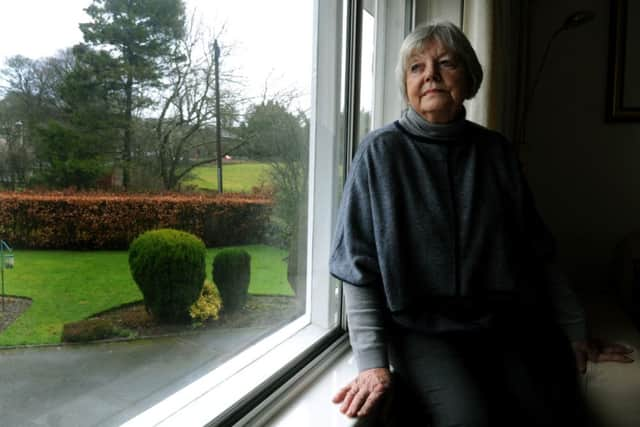Councils warned to defuse the loneliness timebomb


Speaking to The Yorkshire Post on the first anniversary of its Loneliness: The Hidden Epidemic campaign, Coun Shelagh Marshall urged the region’s councils to act now, or later face the consequences.
“By 2027, there will be one million people in their 90s in England, and 40,000 centenarians. If we don’t tackle loneliness now when they are in their 60s and 70s, the health service will not be able to cope,” she said.
Advertisement
Hide AdAdvertisement
Hide AdCoun Marshall started working with older people in her 40s while teaching at Ilkley College. Three years ago she became the lead of Age Action Alliance’s Isolation and Loneliness Working Group, and she is a member of the Campaign to End Loneliness, a partner in The Yorkshire Post campaign.
A member on North Yorkshire County Council for 25 years, she is the authority’s Older People’s Champion and also chairs Future Years, the Yorkshire and Humber Forum on Ageing.
She echoed The Yorkshire Post calls for our local authorities to make tackling loneliness a priority in their Health and Wellbeing Strategies, but also go further by pledging to do preventative work.
“Loneliness needs to be a priority,” she said.
“I would like to see preventative strategies for all local authorities to identify older people that might be at risk of loneliness and plans on how to address it.”
Advertisement
Hide AdAdvertisement
Hide AdOne of the key challenges in tackling loneliness is identifying those who are suffering, she said. But GPs and pharmacists are best placed to refer people to social care organisations and charities like Age UK on behalf of local authorities.
Simple initiatives like asking older people to fill out a questionnaire while they are getting a prescription could help identify those at risk.
“This is not about reinventing the wheel,” she said.
“But people need to be shown what needs to be done, and local authorities, can identify in their public health strategies what they, and other groups, can do to identify the members of the community who are at risk of loneliness.”
Last month, a survey by the charity Independent Age revealed that loneliness is among the biggest concerns facing the ageing population, with almost half of those questioned worried about the isolation of someone over 65.
Advertisement
Hide AdAdvertisement
Hide AdShe gave examples where the bodies of elderly people had been discovered in their homes days after they had died, and said that while the onus was on local authorities to ensure this did not happen, there were things we could all do to ensure no one is isolated.
Member of the Rotary Club in North Yorkshire, for example, were trained in spotting the signs of loneliness and Coun Marshall herself set up an over-50s forum in her home village of Embsa.
Coun Marshall said: “Campaigns like The Yorkshire Post’s are so important as we need to raise awareness across the board.
“But we can harness what is there in our communities, using people like tradesmen, plumbers and electricians, teaching them to spots the signs of loneliness and see where help is needed.”